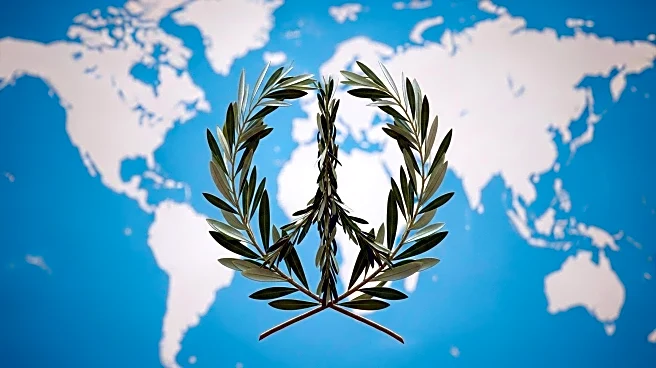What's Happening?
During the United Nations General Assembly, Russian Foreign Minister Sergey Lavrov addressed world leaders, asserting that Russia does not intend to attack Europe but will respond decisively to any aggression. Lavrov's comments come as tensions between Russia and NATO escalate, with recent incidents involving airspace violations. Despite the ongoing conflict in Ukraine, Lavrov expressed hope for continued dialogue with the United States, highlighting a pragmatic approach to resolving differences.
Why It's Important?
Lavrov's address at the UN underscores the persistent geopolitical tensions between Russia and Western nations, particularly in the context of the Ukraine conflict. The situation highlights the challenges of maintaining international peace and security amid conflicting interests and military posturing. Russia's stance may influence NATO's defense strategies and impact diplomatic relations. The emphasis on dialogue with the U.S. suggests potential for de-escalation, but the unresolved Ukraine conflict remains a significant barrier to lasting peace.
What's Next?
Ongoing diplomatic efforts between Russia and Western countries are expected, with potential negotiations aimed at reducing tensions and preventing further incidents. The international community will closely watch Russia's actions and NATO's responses, as any missteps could lead to increased hostilities. The outcome of these diplomatic engagements may shape future security policies and alliances, influencing global power dynamics and the balance of military forces in Europe.









